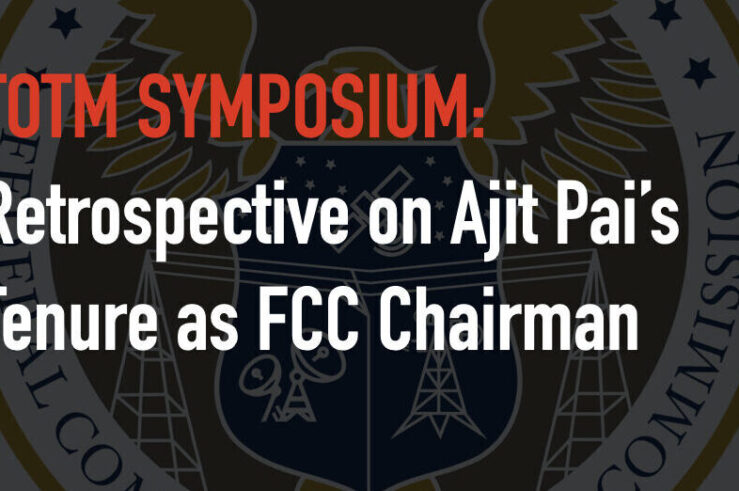Showing results for: “digital markets act”
Terrorism Finance Meets Business Associations
Now that TOTM blog traffic is hitting all-time highs, I thought it would be a good time to share a link to my most recently published paper, Terrorism Finance, Business Associations, and the “Incorporation Transparency Act.” It is highly critical of Senator Levin’s “Incorporation Transparency and Law Enforcement Assistance Act,” over which Senator Levin, Senator Lieberman, ... Terrorism Finance Meets Business Associations
Brokers as fiduciaries
One of Dodd-Frank’s major gifts to lawyers is Section 913(g), titled “authority to establish a fiduciary duty for brokers and dealers.” The section authorizes the SEC to create a standard of conduct for broker-dealers and investment advisers when providing personalized investment advice about securities to retail customers . . . to act in the best ... Brokers as fiduciaries
Commissioner Wright Responds to Section 5 Symposium
I’d like to thank Geoff and Thom for organizing this symposium and creating a forum for an open and frank exchange of ideas about the FTC’s unfair methods of competition authority under Section 5. In offering my own views in a concrete proposed Policy Statement and speech earlier this summer, I hoped to encourage just ... Commissioner Wright Responds to Section 5 Symposium
Froeb & Ganglmair on Antitrust and Patent Holdup
Luke Froeb and Bernard Ganglmair have posted An Equilibrium Analysis of Antitrust as the Solution to Patent Holdup. Here’s the abstract: After downstream manufacturers make relationship-specific investments to develop products using upstream patented technology, they can be held-up” by patentees, sometimes called “patent ambush.” If manufacturers anticipate hold-up, they will be reluctant to make relationship-specific ... Froeb & Ganglmair on Antitrust and Patent Holdup
Constitutional Dynamism: Responding to Tim Wu on “Machine Speech”, “Opportunism”, and First Amendment
William Buckley once described a conservative as “someone who stands athwart history, yelling Stop.” Ironically, this definition applies to Professor Tim Wu’s stance against the Supreme Court applying the Constitution’s protections to the information age. Wu admits he is going against the grain by fighting what he describes as leading liberals from the civil rights ... Constitutional Dynamism: Responding to Tim Wu on “Machine Speech”, “Opportunism”, and First Amendment
Is it time for a new approach to generic drugs?
We don’t yet know how bad the coronavirus outbreak will be in America. But we do know that the virus is likely to have a major impact on Americans’ access to medication. Currently, 80% of the active ingredients found in the drugs Americans take are made in China, and the virus has disrupted China’s ability ... Is it time for a new approach to generic drugs?
My Professor, My Judge, and the Doctrine of Judicial Review
Imagine if you picked up your morning paper to read that one of your astronomy professors had publicly questioned whether the earth, in fact, revolves around the sun. Or suppose that one of your economics professors was quoted as saying that consumers would purchase more gasoline if the price would simply rise. Or maybe your ... My Professor, My Judge, and the Doctrine of Judicial Review
Dirty Coal’s Rent-Seeking Pays Off
Today’s Heard on the Street column in the W$J reports that utilities are moving away from low-sulfur coal in favor of the dirtier, high-sulfur variety. This might seem odd, given that the Clean Air Act operates on sort of a “ratchet” principle — i.e., when air quality improves, degradation is generally forbidden. One might expect ... Dirty Coal’s Rent-Seeking Pays Off
The FTC Takes on “Petitioning” of Government as an Anticompetitive Exclusionary Tactic
Background Some of the most pernicious and welfare-inimical anticompetitive activity stems from the efforts of firms to use governmental regulation to raise rivals’ costs or totally exclude them from the market (see, for example, here). The surest cure to such economic harm is, of course, the elimination or reform of anticompetitive government laws and regulations, ... The FTC Takes on “Petitioning” of Government as an Anticompetitive Exclusionary Tactic
I’ve been misinterpreted.
I recently published an article on section 36(a) of the Investment Company Act of 1940. Section 36(a) provides a federal cause of action for “a breach of fiduciary duty involving personal misconduct in respect of any registered investment companyâ€? by an officer, director, investment adviser, or principal underwriter of an investment company, among others. Although ... I’ve been misinterpreted.
Symposium on Big Tech and the Digital Economy: The Moligopoly Scenario
In his book, Petit offers a “moligopoly” framework for understanding competition between large tech companies that may have significant market shares in their ‘home’ markets but nevertheless compete intensely in adjacent ones. Petit argues that tech giants coexist as both monopolies and oligopolies in markets defined by uncertainty and dynamism, and offers policy tools for ... Symposium on Big Tech and the Digital Economy: The Moligopoly Scenario
Ajit Pai and Risk-Taking at the FCC
It would be impossible to describe Ajit Pai’s tenure as chair of the Federal Communications Commission as ordinary. Whether or not you thought his regulatory style or his policies were innovative, his relationship with the public has been singular for an FCC chair. His Reese’s mug, alone, has occupied more space in the American media ... Ajit Pai and Risk-Taking at the FCC






